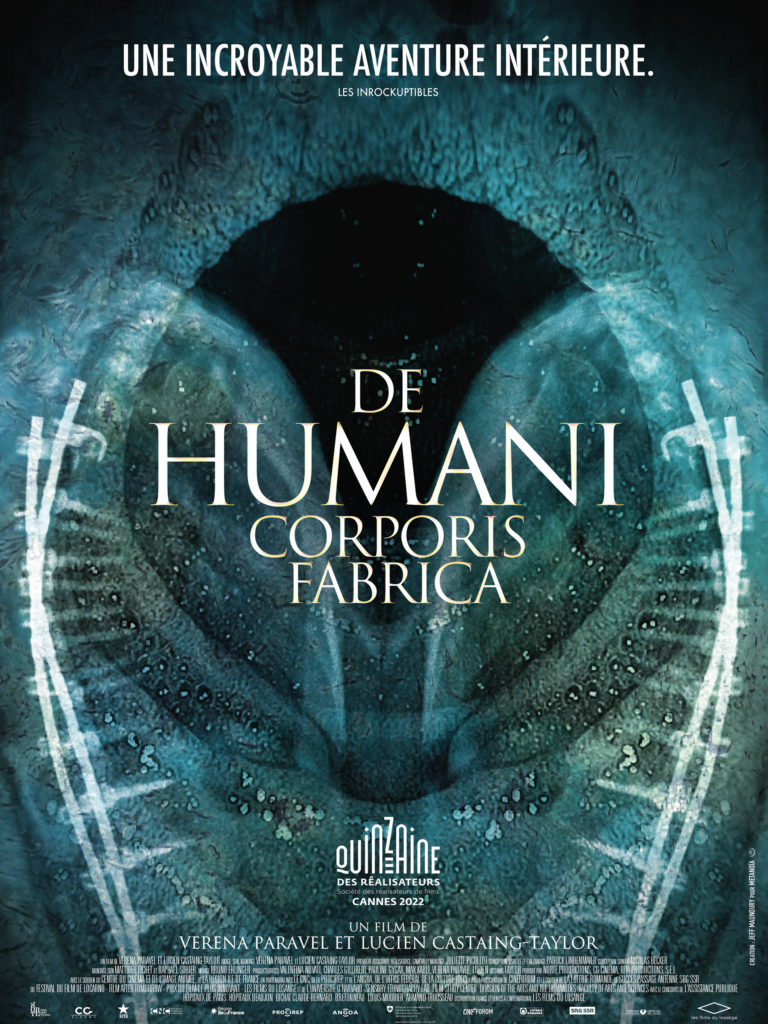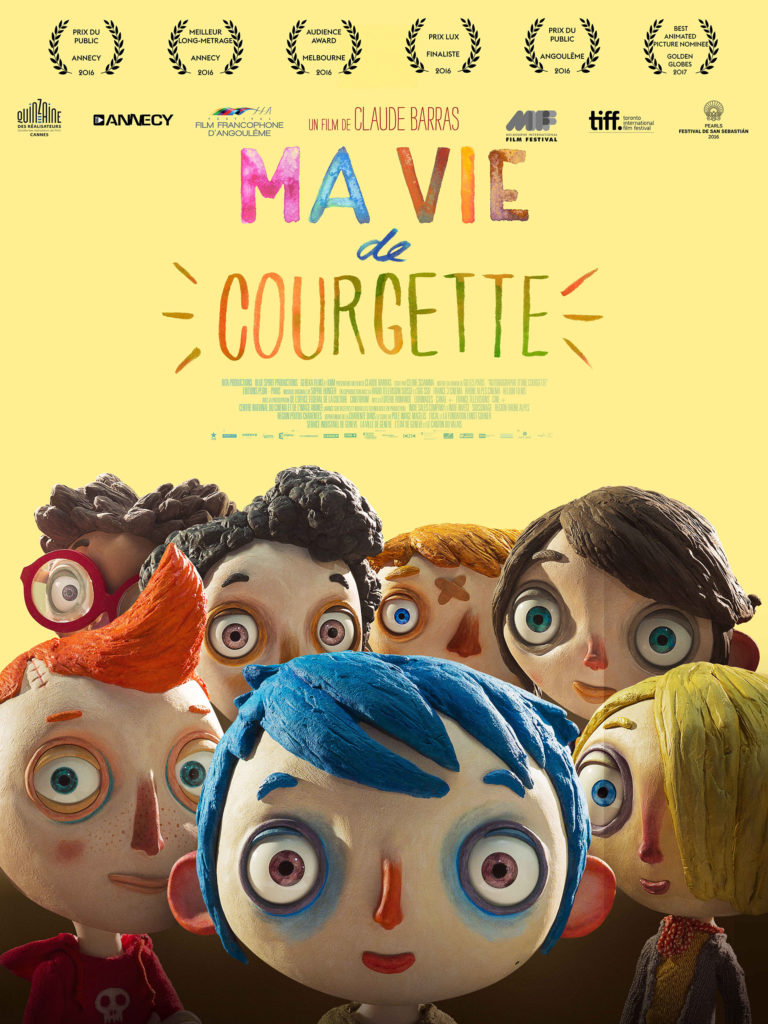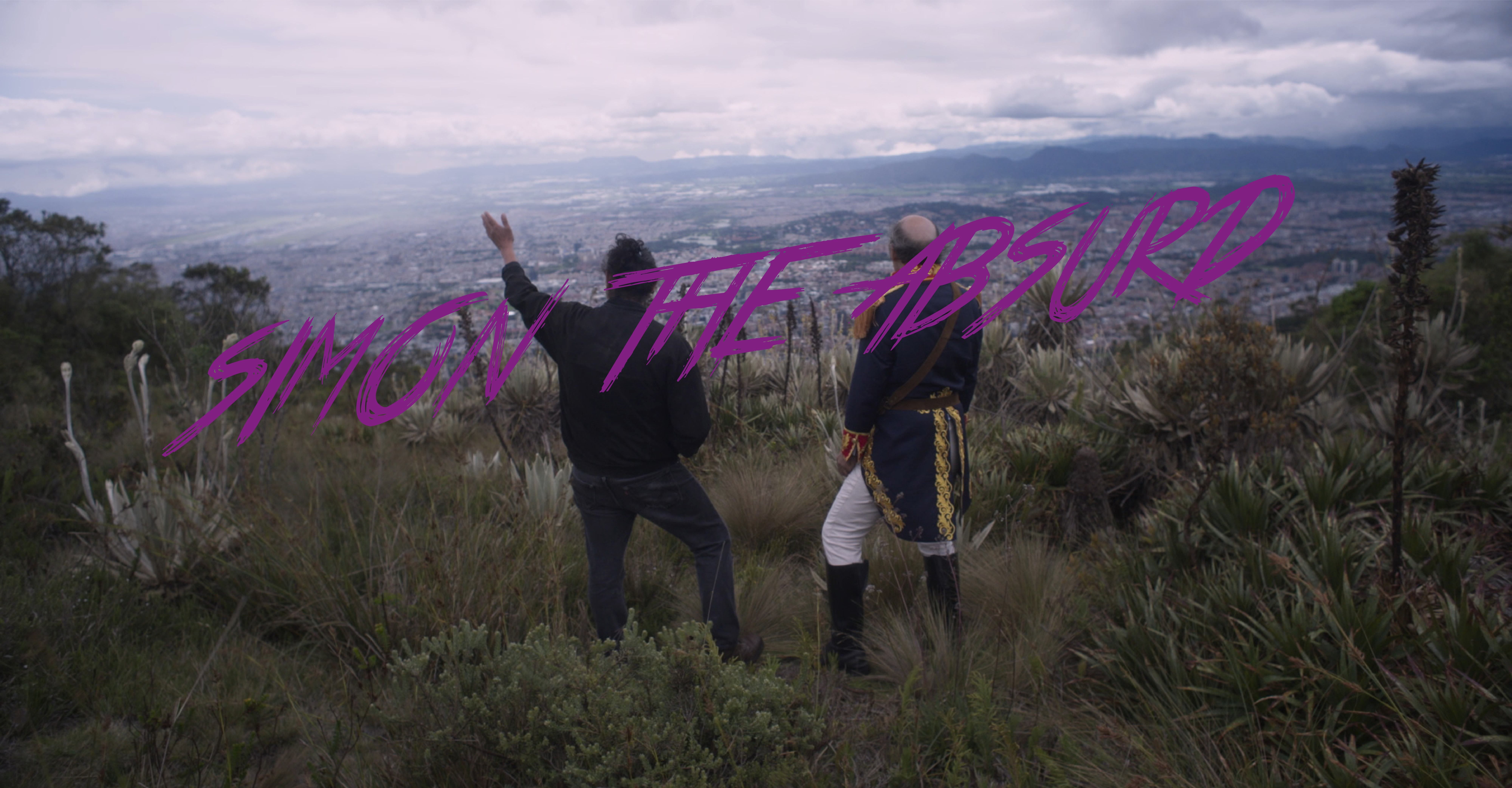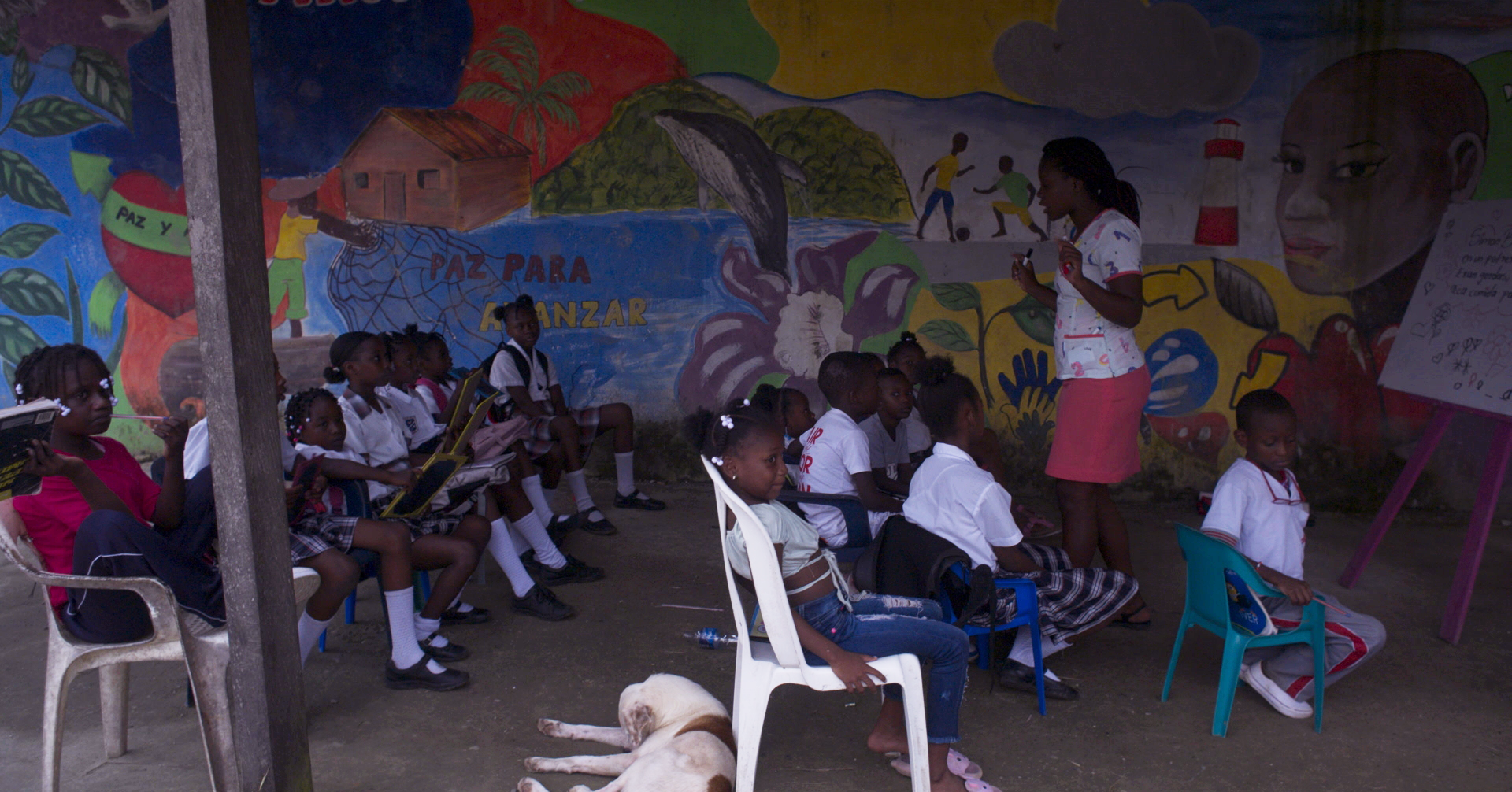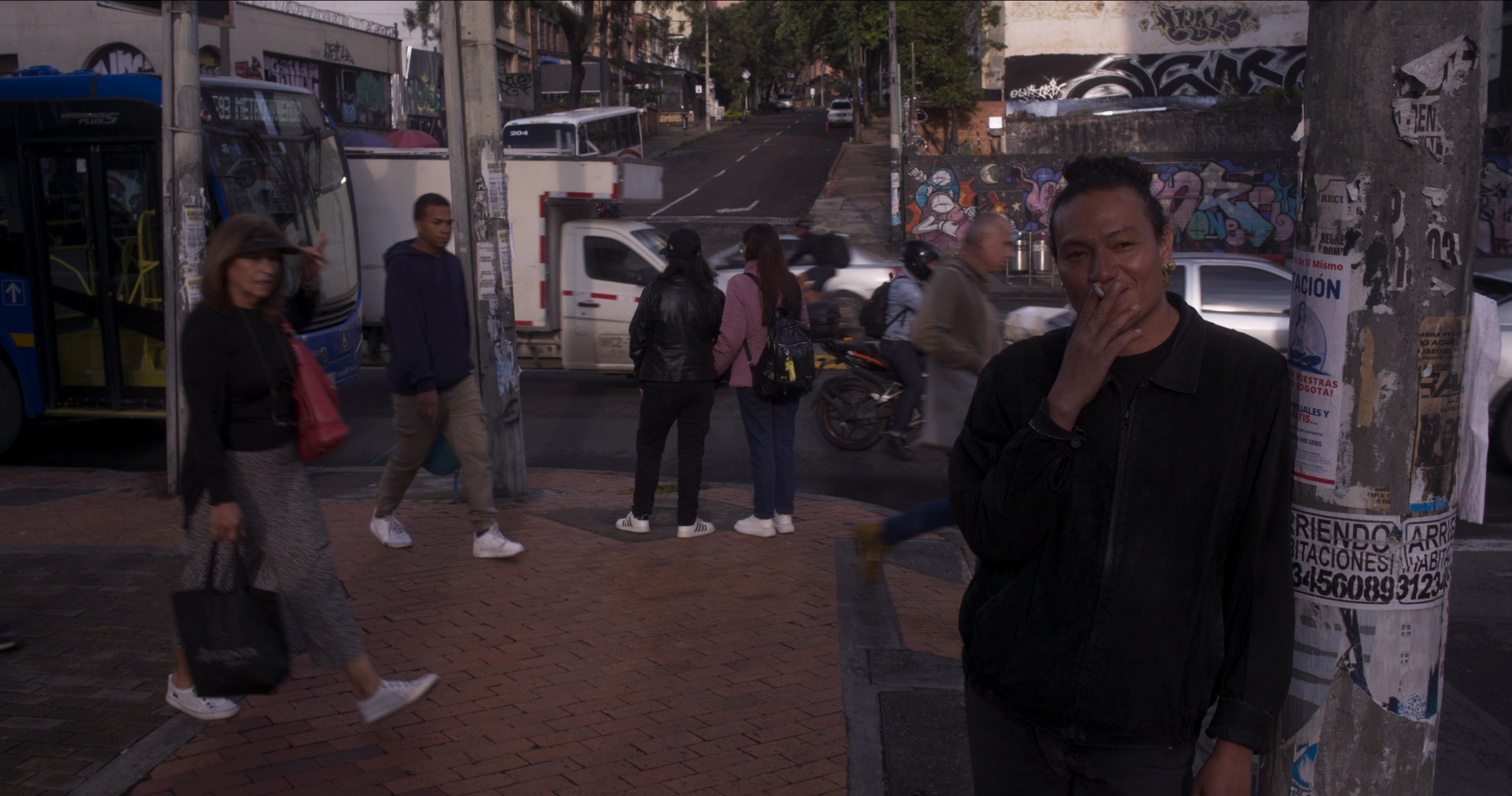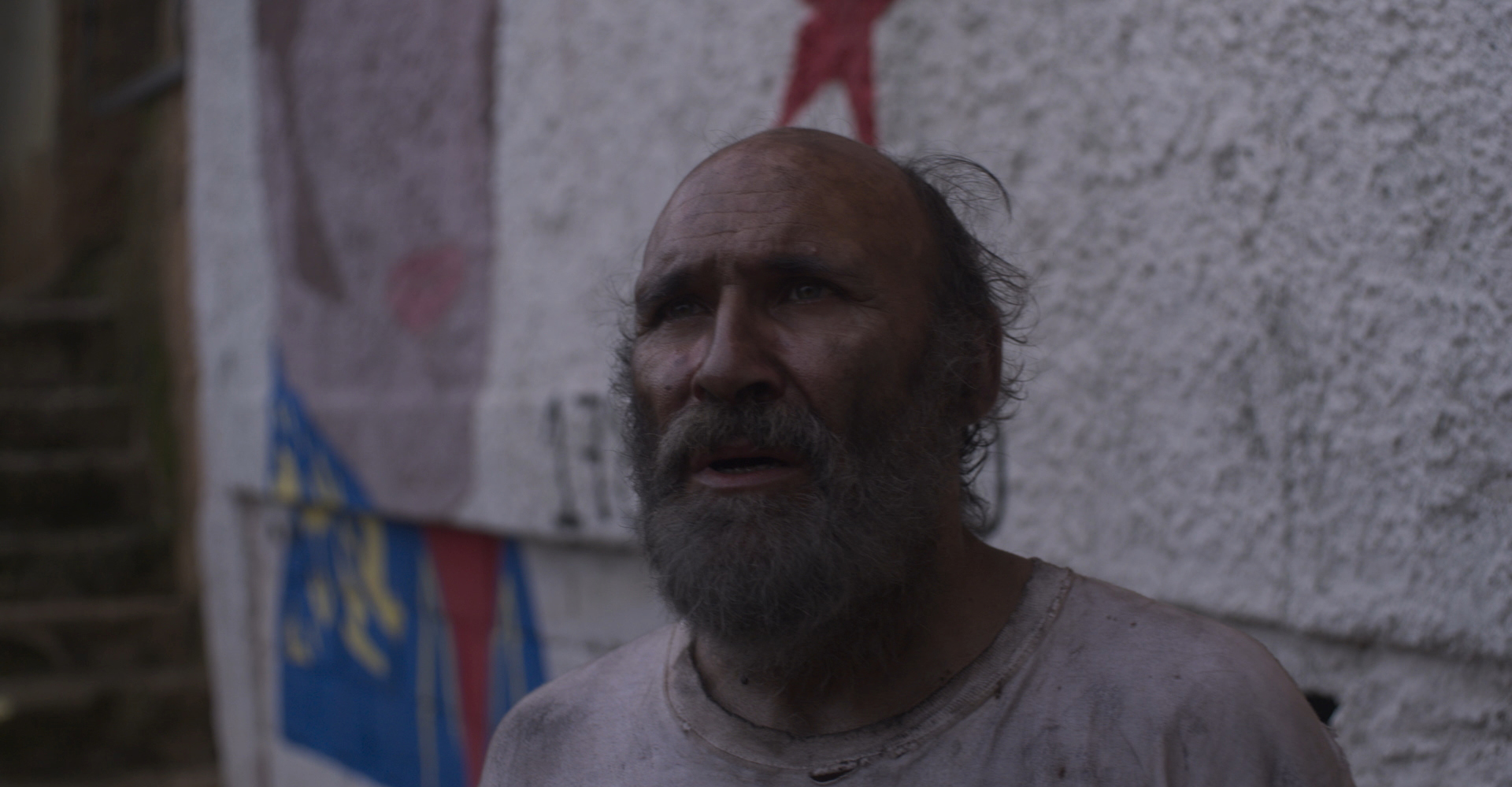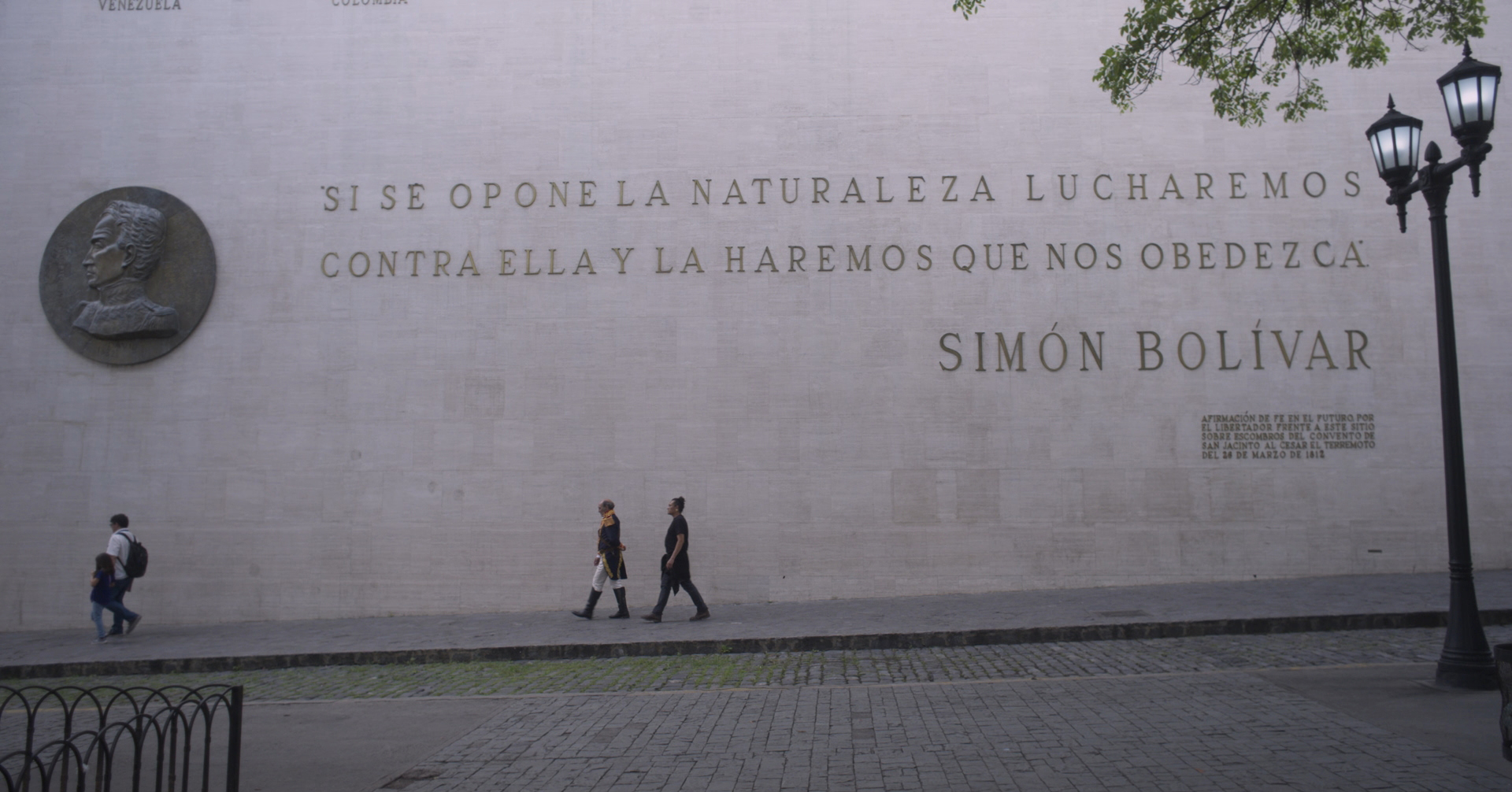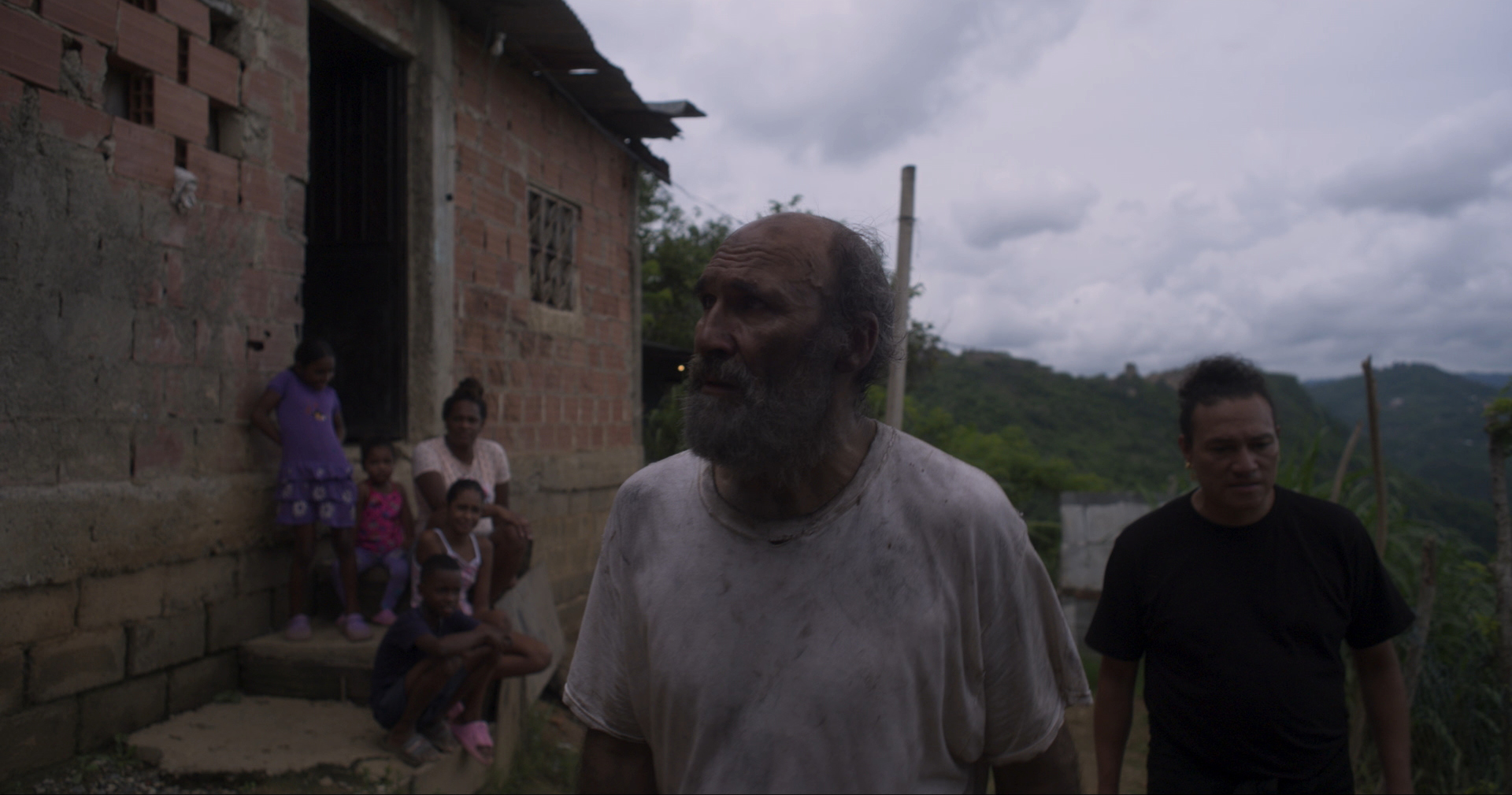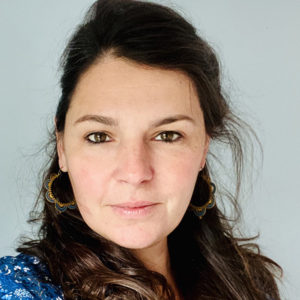

A documentary dream: Simón Bolívar, known in Latin America as « El Libertador », comes back to life. Flattered by his vivid popularity two centuries after his death, Bolívar meets his political heirs. But he is also confronted with the most vulnerable populations, crushed by the white ruling classes. What if the Bolívarian emancipation had merely reproduced an unjust and racist social order?
technical sheet
English title Simon The Absurd
Genre Documentary
Estimated runtime 90’
Production Switzerland, France, Colombia
Shooting format HD
Shooting language Spanish
Filming locations Venezuela, Colombia
in development
Start of principal photography June 2024
Expected release May 2025
Total estimated budget 1’200’000 CHF
Confirmed financing 80%
crew
Actor Antonio Buíl
Director Felipe Monroy
Editor Alexandra Strauss
Actor Antonio Buil
Producers Palmyre Badinier, Alexandre Perrier, Diana Bustamente
Production companies Rita Productions, Kidam, Burning
partners
In coproduction with RTS Radio Télévision Suisse
With the support of Federal Office of Culture (FOC), Cinéforom and Loterie Romande, Switzerland, El Fundo de Desarollo Columbiano, la Région Nouvelle Aquitaine
With the participation of Succès passage antenne SRG SSR, SSA, Switzerland
synopsis
A precursor of Latin American emancipation, Simón Bolívar (1783-1830) was erected as a true icon in the countries he had liberated from the Spanish yoke. Now more than ever, his texts serve to feed a rhetoric of national sovereignty, social justice or pan-Americanism.
So let’s imagine for a moment, in a world where everything would be possible, that Bolívar comes back to life. This cosmic reincarnation takes place through the shamanic prayers of Felipe, an Indigenous Colombian film director witnessing the current social and economic South American mess.
Brought back to life, Bolívar reveals himself to be a rather self-confident man, trusting the conditions he had created for a society based on a sense of equality, justice, and fraternity. But soon, he begins to doubt his own legacy: Bolívarian Venezuela, to start with, is in the grip of famine and exile. Yet, his pride leads him to blame this mess on the people, incapable, he thinks, of behaving with dignity. Although he has been raised in Bolívarianism, Felipe is stung by Simón’s attitude and makes it a point of honor to confront him with the harsh reality of the population Simón thinks he has « liberated ».
Recalling the independence military campaigns led by Bolívar in 1819, Felipe and Simón travel across Latin America, from North to South. In a documentary set up that combines meetings with major political figures with testimonies of the black, indigenous, and mulatto communities Simón falls from Charybdis to Scylla and begins to doubt his own legacy.
In this resolutely post-colonial and indigenous film, the mixed point-of-views, the satiric tone and the making and use of political icons question the point of view espoused by history books. By the way, it is said that, after trying to expiate his sins against the most marginal populations in America, our Simón finally jumped to his death from a cliff in the southernmost reaches of Patagonia.

director’s note
How does the messianic image of the « liberator », the « creator of independence », legitimizes the power of the white minority? What are the consequences 200 years later? In some of the most inegalitarian countries on the planet, it is about time to address our own fascination towards white, paternalistic, and comforting heroic figures. But we also need to interrogate historical facts and their consequences on the most vulnerable populations. For, in 200 years, the situation of Indians, Afros, Mulattos, Zambos and Metis, who left their lives in the factories or on the battlefields, has only become more precarious, even unbearable. A resolutely post-colonial quest conducted from an indigenous point of view, Simón the Absurd will take a lucid look at the reality of contemporary Latin America, while questioning the viewer about the making and use of political icons.
In the prolongation of my previous documentary trilogy in Colombia, I wish to give a voice to the victims of the domination mechanisms. The film aims at highlighting some systematic trends, taking the form of a road movie through Latin America. Testimonies of struggling people will be set up at the height of political personalities’ speeches, the ones who use and handle the most perfectly « Bolívarian » language today.This dramatic picture of reality will be narrated sometimes with an ironic tone, my own tool to deal with painful and difficult subjects.
To embody all these questions cinematically, I will use a fictional protagonist as a narrative tool within the documentary story. Both the character and his interventions are deeply nourished by historical references. But the ethical contract with the viewer will be clear: Simón Bolívar will be the only fictional character played by a professional actor and his reincarnation is clearly staged. Here, the absurdity of the set-up will give the audience the needed room for their own thinking.
The visual methods will vary according to the sequences »™ nature. During encounters with the protagonists, the camera will be very close, to create intimacy between Simón and them, to expose expressions and pain up close. It will also be attentive to Simón’s feelings and their evolution. The floating sensation proper to the hand-held camera humanizes the image: micro-movements tell us that there is someone behind the camera, listening attentively to the stories. For travel scenes, shots will be wide to show the geography and specificity of the landscapes. Here, we will favor a more robust set-up, like using dolly to offer a better reading of the space. At the end of the film, in the Andes, the register will switch in order to sublimate the landscapes »™ majesty and put into images the painful memories of indigenous Quechua women. Finally, to transit from one location to another, the two main characters will travel through a compilation of archive images or historical facts that will establish the specific context of the documentary encounters.
director’s biography
Born in 1983 in Bogota, Colombia, Felipe Monroy left his country at the age of 24 to make films. More than a dream, it was a visceral need that led him to settle illegally in Europe in 2007. In 2013, Felipe obtained a Bachelor’s degree in Visual Arts with a specialization in cinema at the Geneva School of Art and Design (HEAD).
Based in Geneva, he works with people struggling to exist in the daylight, like in Meanwhile, In Beirut (2017). His Colombian trilogy (Tacacho, Los fantasmas del Caribe and Hijos del viento) is a sensitive testimony about the living conditions and the terrible violence inflicted on the poorest communities in Colombia.
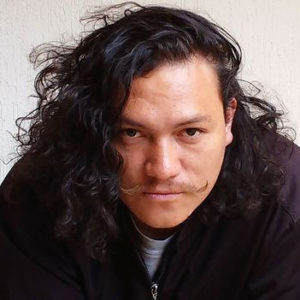
Hijos del viento, 148’
2022, Visions du Réel
Los fantasmas del Caribe, 89’
2018, Visions du Réel
Tacacho, 70’
2013 Visions du Réel, FIFDH Paris
Meanwhile in Beirut, 50′
2020
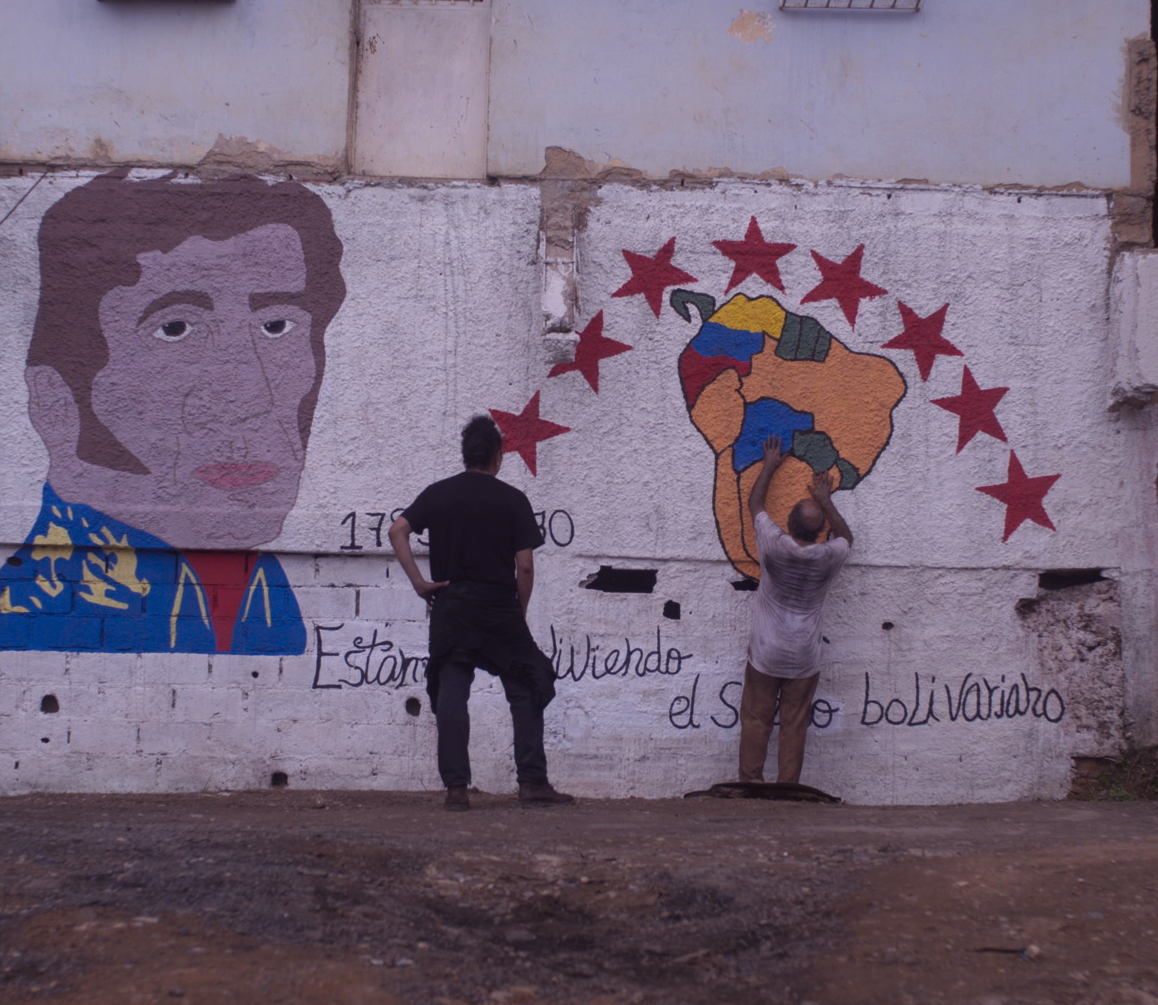
producer’s note
Considering that History itself is a mix of fictive narratives, real events, and subjective points of view, Felipe’s hybrid approach to questioning a major figure like Bolívar felt more than right to me. Thanks to my previous experiences in producing hybrid works, I am aware of the challenges attached to the scale of the cost (and the responsibility that comes with it) and to the ethics of documentary preservation.
To reach our ambitions, we are gathering a pool of very talented people around us! Our Simón Bolívar will be interpreted by Swiss-Spanish actor Antonio Buíl. The editing and the writing process are led with talented French editor Alexandra Strauss (Exterminates All The Brutes, R. Peck, 2021), and supported by strong historical consultations. The coproduction set up counts Diana Bustamente (Memoria, A. Weerasethakul, 2021) in Colombia and Alexandre Perrier from KIDAM who co-developed the project in France.
If Bolívar is an icon familiar to all Latin American population, we also want to make the film accessible to an international audience without precise knowledge of the Latin American context In this perspective, our ambition is to offer an emotional and intimate journey rather than a simplist political statement. The hybrid aspect of the film allows us to target independent film and art-house documentary lovers at first, 40+ years old. Most of the protagonists will be women, a choice driven by an anchored need of the filmmaker to increase their visibility on the international screens. The visual treatment and part of the story line will hold some queer references. Our target audience is therefore reflecting this diversity.
producer’s profile
Palmyre Badinier started producing documentaries while being based in Palestine and dedicated herself to Arab cinema for 10 years. She settled in Geneva in 2018 developing and (co-) producing a wide range of Swiss and foreign films such as The Shameless (2024) by Konstantin Bojanov, to be premiered at “Un Certain Regard” Cannes Official Selection or Swiss cinema award winning documentary title Je Suis Noires (2023) by Rachel M’Bon and Juliana Fanjul. She joined Rita Productions early 2022. Passionate by hybrid cinema, her filmography includes Under the Fig Trees (2022) by Erige Sehiri, A Thousand Fires (2021) by Saeed Taji Farouky, Ghost Hunting (2017) by Raed Andoni.
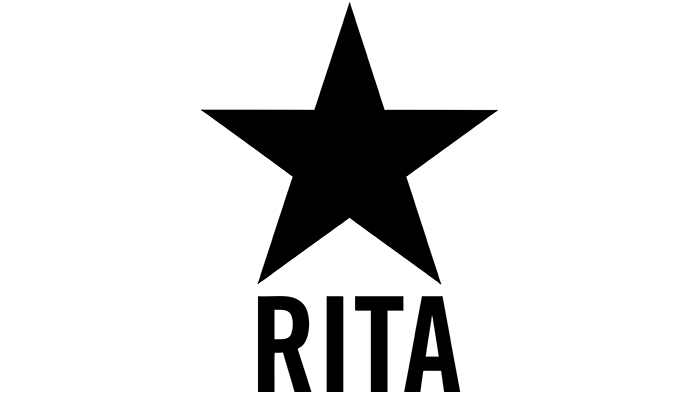
rita productions
Founded by Pauline Gygax and Max Karli, Rita Productions has produced fiction and documentaries since 2003, becoming one of the leading production companies in French-speaking Switzerland. The two producers lately released The Line by Ursula Meier presented in official competition at the Berlinale in February 2022 in co-production with Les Films de Pierre (FR) and Les Films du Fleuve (BE), and the new feature film by Lionel Baier Continental Drifts (South) in co-production with Les Films du Losange (FR) presented in World Premiere at the Directors’ Fortnight in April 2022.
Films from recent years include: The Guardians by Xavier Beauvois, Salvation Army by Abdellah Taïa, Dirty Gold War by Daniel Schweizer and Longwaves (West) by Lionel Baier. Claude Barras’ animated feature My Life as a Zucchini written by Céline Sciamma, which after a Premiere at the Directors’ Fortnight in 2016, won two Cesars and three Swiss Awards and was also nominated for the 2017 Oscars. Most recent documentary titles include De Humani Corporis Fabrica (2022) by Verena Paravel and Lucien Castaing-Taylor.
